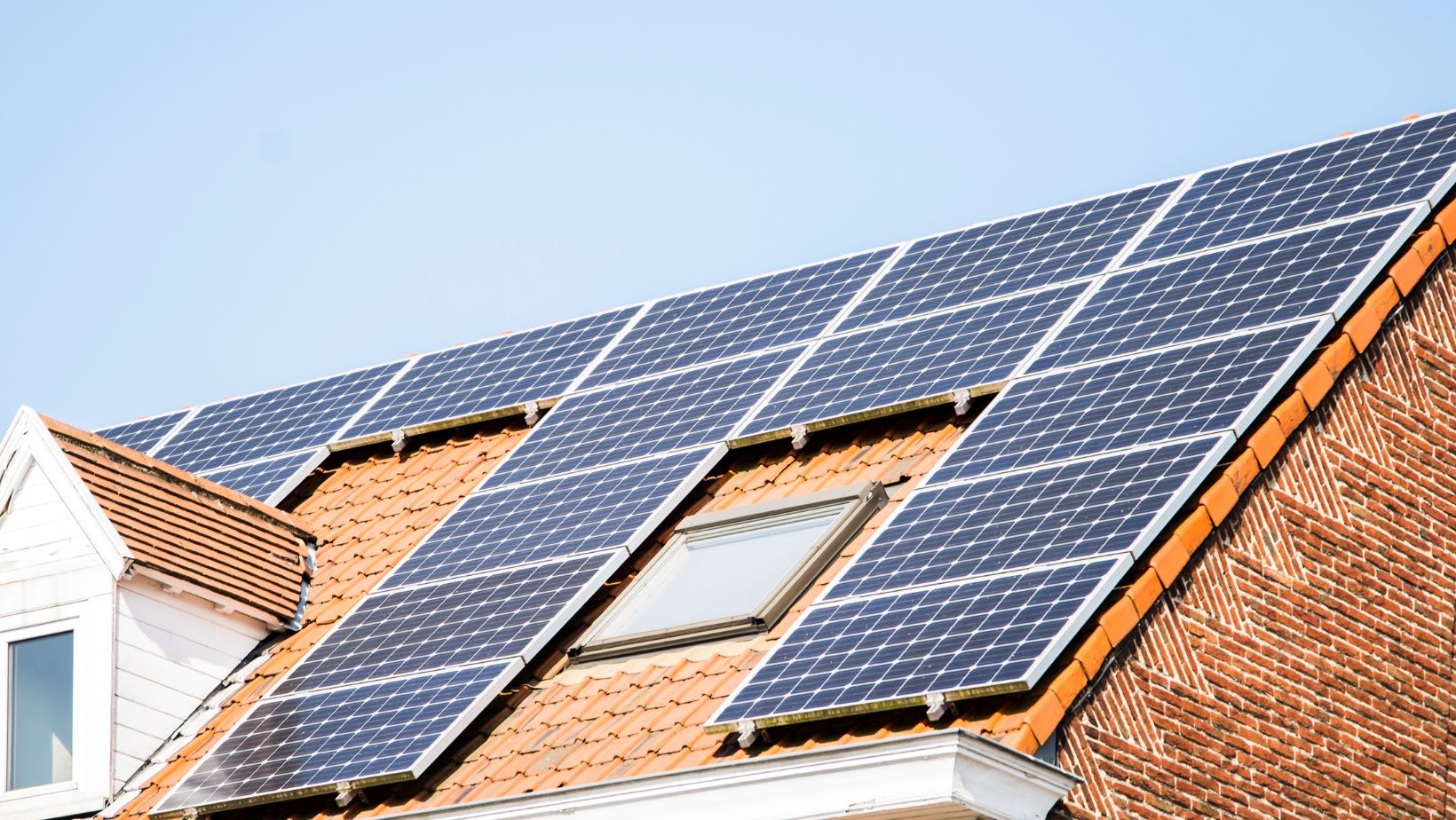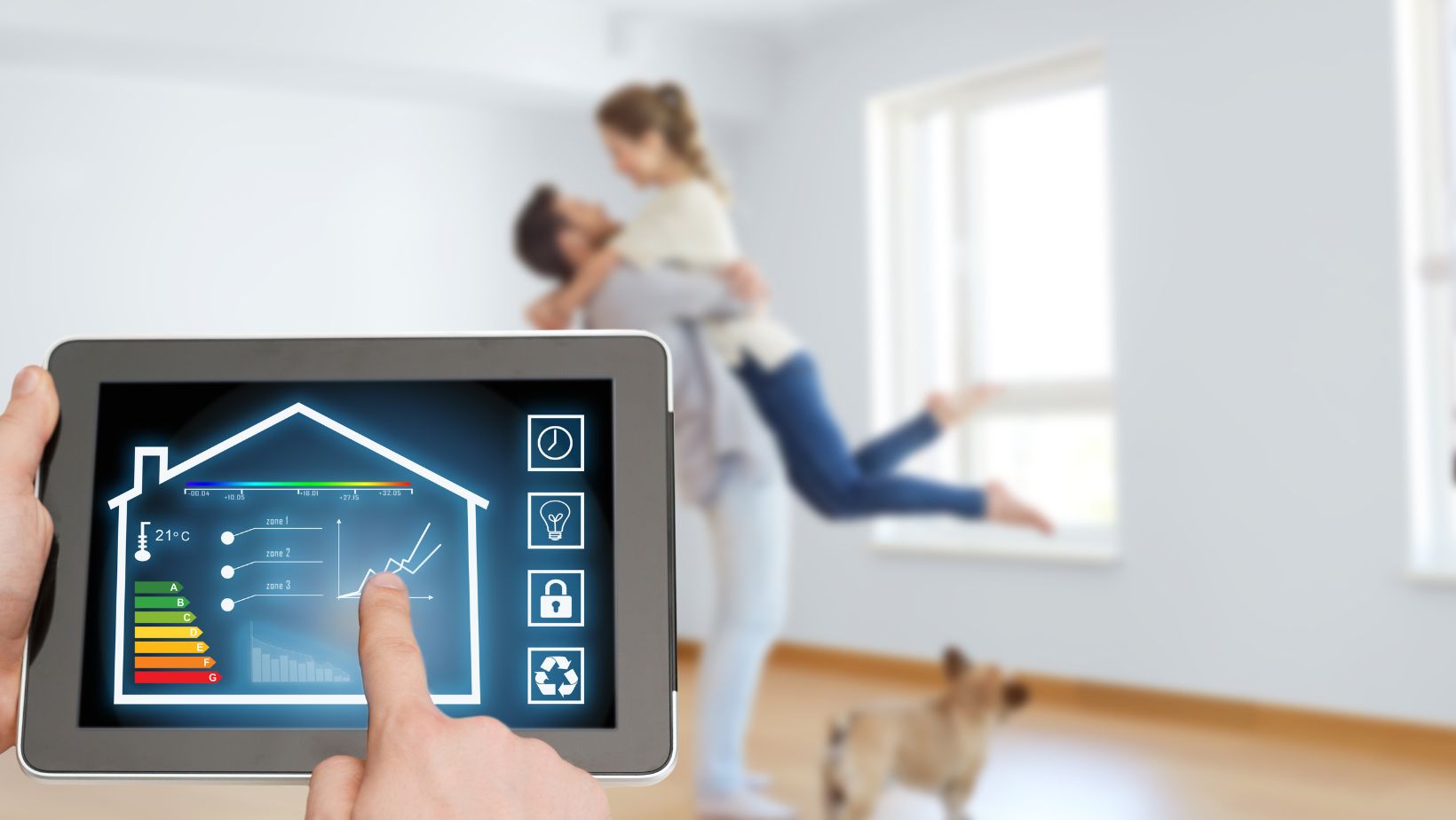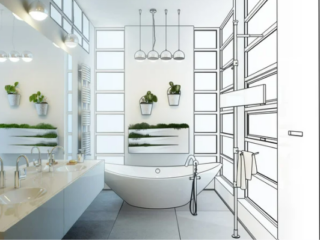
Living sustainably has become more critical than ever as people face the challenges of climate change and environmental degradation. One of the most effective ways to embrace sustainable living is by harnessing solar energy. Solar power offers numerous benefits and by transforming your home into a sustainable haven, you can contribute to a greener future.
Furthermore, due to advances in technology, most of these innovations are quite affordable. For instance, the average cost of solar panels is 70% lower than a decade ago. This article will explore the concept of “greenovation” and how solar energy can be the key to creating a sustainable home.
Embracing Solar Energy
Solar energy represents a clean, plentiful and sustainable resource that effectively reduces carbon footprint. When homeowners install solar panels, they can reap a myriad of advantages. Solar energy serves as an environmentally friendly alternative to fossil fuels, as it generates electricity without producing any greenhouse gas emissions, thus decreasing reliance on finite resources.

By harnessing the power of the sun, solar panels generate electricity and substantially reduce energy costs. As the cost of solar technology continues to decline, it becomes more accessible to homeowners. Moreover, solar panels boast an impressive longevity of 25 to 30 years, offering long-term savings and benefits.
Energy-Efficient Home Design
Adopting energy-efficient home design practices alongside solar power enhances sustainability. The passive solar design maximizes natural light and heat while minimizing loss. Strategically placing windows and using shading devices like awnings or blinds achieves this. Proper insulation regulates indoor temperatures, reducing the need for excessive heating or cooling.
Sealing air leaks and improving insulation saves energy. Replace outdated appliances with Energy Star models to reduce consumption—transition to LED or solar-powered lighting options for energy savings. LEDs are 80% more efficient than incandescent bulbs and have a longer lifespan. Looking for cheaper energy plan? Check the average price of electricity in Texas and choose which plan is best for your needs.
Proper Waste Disposal
Every family member must know how to segregate waste, recycle, and compost. Proper waste disposal is essential for transforming your home into a sustainable haven, and utilizing a dumpster rental service is a key component of an effective waste disposal process. Responsible waste management is crucial in reducing environmental impact, conserving resources, minimizing pollution, and contributing to a circular economy.
Paper, plastic, glass, and metal helps conserve natural resources, reduce energy consumption, and decrease the extraction of finite resources. Additionally, engaging in recycling and responsible waste disposal supports the concept of a circular economy, promoting a shift away from a linear “take, make, dispose” model.
Implementing proper waste disposal practices not only enhances the visual appeal of your property but also contributes to a positive and healthy living atmosphere. By actively participating in recycling programs and utilizing dumpster rental services, you may also benefit from financial savings and community engagement opportunities.
Selecting a waste disposal and dumpster rental service involves considering factors like waste type, dumpster size, rental period, pricing transparency, regulatory compliance, environmental practices, customer feedbacks, and customer support. Ensuring alignment with local regulations and prioritizing sustainability contribute to an informed decision for efficient and responsible waste management.
Create Homemade Cleaning Products
Commercial cleaning products usually contain harsh chemicals that can harm the environment. Homemade cleaners can be made using natural and biodegradable ingredients, reducing environmental impact.
You can create your own natural household cleaning products with N-Essentials and other reputable suppliers to transform your lovely home into a healthier and sustainable haven. Not only do homemade cleaners help reduce your environmental impact, but they also allow you greater control over the ingredients used in your home.
Baking soda serves as a gentle abrasive, while white vinegar, with its antibacterial properties, cuts through grease and grime. Castile soap, a plant-based cleaner, is gentle on surfaces. Tea tree, lavender, eucalyptus oil, and other essential oils provide natural fragrances and possess antibacterial properties. On the other hand, lemon juice, containing citric acid, aids in cutting through grease and adds a refreshing scent.
Simple recipes like an all-purpose cleaner, citrus disinfectant, or a grease-cutting scrub can be easily concocted. Don’t forget to label containers, patch-test new solutions, and store them appropriately. You can also experiment with essential oil combinations to customize scents. Additionally, making your cleaning agents can be a learning experience and empowering, allowing you to take control of the products used at home.
Water Conservation Strategies
Conserving water is crucial for sustainable living. Use water-saving fixtures like low-flow showerheads and faucets to reduce consumption without sacrificing performance. For instance, you can install water-saving toilets and dishwashers that use less water per flush or cycle.
Also, you can implement rainwater harvesting systems to conserve water and alleviate pressure on local resources. Collect and reuse rainwater for non-potable purposes like irrigation. Install rain barrels or cisterns for a sustainable water source. If you need help, The Environmental Protection Agency offers guidance on residential rainwater harvesting systems.
Sustainable Landscaping
Sustainable landscaping plays a vital role in environmental preservation. Incorporating native and drought-tolerant plants not only conserves water but also fosters biodiversity. Native species, being adapted to the local climate, demand less water and maintenance, promoting ecological balance.
Zeon Zoysia grass is highly versatile and can thrive in both scorching hot summers and freezing cold winters. Its slow growth rate means less frequent mowing, yet you’ll still enjoy a stunning lawn with minimal maintenance.
Implementing permeable surfaces and rain gardens presents a sustainable approach to managing stormwater. By allowing water to infiltrate, these features alleviate pressure on stormwater systems. Rain gardens are particularly effective in capturing and filtering rainwater, preventing pollution and recharging groundwater reserves.
Smart Home Technology and Energy Monitoring
Smart home technology and energy monitoring tools allow homeowners to optimize energy usage and reduce waste. Smart thermostats enable precise control over home temperature, allowing you to regulate energy consumption efficiently. Energy management systems offer customized settings, adjusting energy usage based on occupancy and user preferences. These technologies can significantly reduce energy waste and lower utility bills.

Energy monitoring and tracking tools offer up-to-date information on energy usage, enabling homeowners to pinpoint areas that require improvement and adjust their habits accordingly. By gaining insights into the patterns and timing of energy consumption, individuals can make informed decisions to optimize efficiency. Numerous energy monitoring apps and devices are at their disposal, empowering homeowners to take an active role in managing their energy usage efficiently.
Final Note
Greenovation, transforming your home into a sustainable haven through solar energy, offers a pathway to a greener and more sustainable future. By embracing solar power, adopting energy-efficient design principles, conserving water, implementing sustainable landscaping practices and utilizing smart home technology, homeowners can significantly impact the environment while enjoying long-term benefits.





